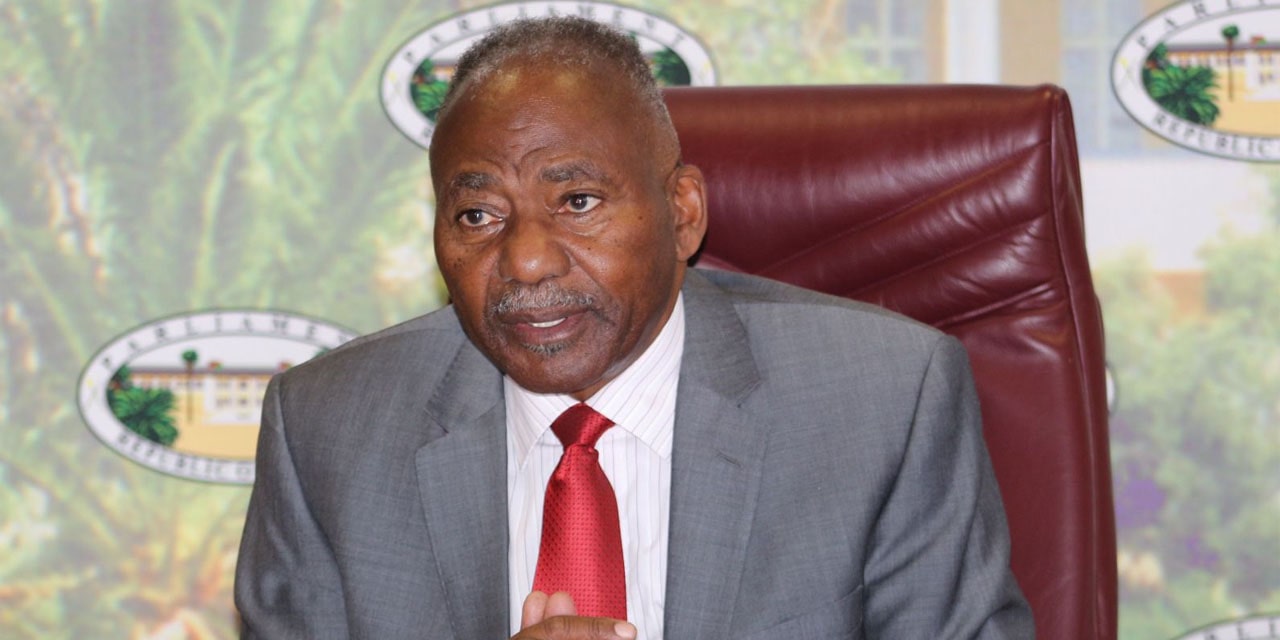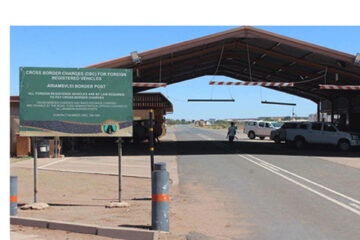Niël Terblanché
Namibia is actively adopting the principles of a circular economy to enhance resource efficiency and stimulate economic growth.
At a recent meeting in Walvis Bay, Professor Peter Katjavivi, Speaker of the National Assembly and Chairman of the Namibia National Cleaner Production and Sustainable Consumption Centre (NNCPC), called for the nation’s commitment to this transformative economic model.
He said a circular economy focuses on the continuous use of resources by promoting sharing, leasing, reusing, repairing, refurbishing, and recycling existing materials and products.
This approach contrasts with the traditional linear economy, which follows a ‘take-make-dispose’ pattern, leading to significant waste and environmental degradation.
“By implementing circular economy practices, Namibia aims to minimize waste, reduce environmental impact, and create new economic opportunities,” he said.
Professor Katjavivi outlined the potential for various sectors of the Namibian economy to integrate circular economy principles.
He identified key industries such as mining, fisheries, agriculture, and manufacturing as pivotal in driving this transition.
“Throughout all these sectors, we can apply the circular economy concept to create an industrial ecosystem meant to drive the country towards a circular economy where we have industrial symbiosis and synergies,” he said.
According to Katjavivi, Namibia’s diverse natural resources across its 14 regions present unique opportunities for regional development through circular practices.
For instance, regions rich in minerals can focus on sustainable mining and material recovery, while coastal areas can explore innovative uses of marine resources,” he said.
He added that the regional approach not only promotes economic diversification but also ensures that local communities benefit directly from sustainable practices.
To facilitate the transition to a circular economy, Katjavivi stressed the importance of awareness, capacity building, and stakeholder involvement.
He proposed the establishment of dedicated institutions to guide industrialists towards green industrialization and sustainable consumption habits.
Katjavivi called for the creation of Centres of Excellence aimed at adding value to natural resources and the development of Eco-industrial Parks in all regions as strategic initiatives.
“These parks would promote industrial symbiosis, where by-products from one industry serve as raw materials for another, thereby reducing waste and enhancing resource efficiency,” he said.
According to Katjavivi, the benefits of adopting a circular economy are manifold.
He said that according to the Ellen MacArthur Foundation, such an economy can lead to reduced greenhouse gas emissions, decreased resource consumption, and the creation of new job opportunities.
He added that the transition is expected to strengthen economic resilience, reduce environmental degradation, and position the nation as a leader in sustainable development within the region.
Katjavivi indicated that in line with these efforts, plans are underway to establish a Centre of Excellence in Mineral Beneficiation.
“Such a centre would enhance the capacity of Namibia’s mining sector towards value addition, increasing foreign exchange earnings and creating employment opportunities,” he said.
Katjavivi also expressed optimism about such an initiative.
“This is a timely move and it will go a long way to increase our forex earnings and also create jobs for many of our youths and women among others, who are unemployed,” he said.
He added that the successful implementation of a circular economy in Namibia will require collaboration among policymakers, the private sector, academia, and civil society.
“By embracing this sustainable economic model, Namibia can take proactive steps towards a more resilient and prosperous future, ensuring that economic growth does not come at the expense of environmental health,” he said.




